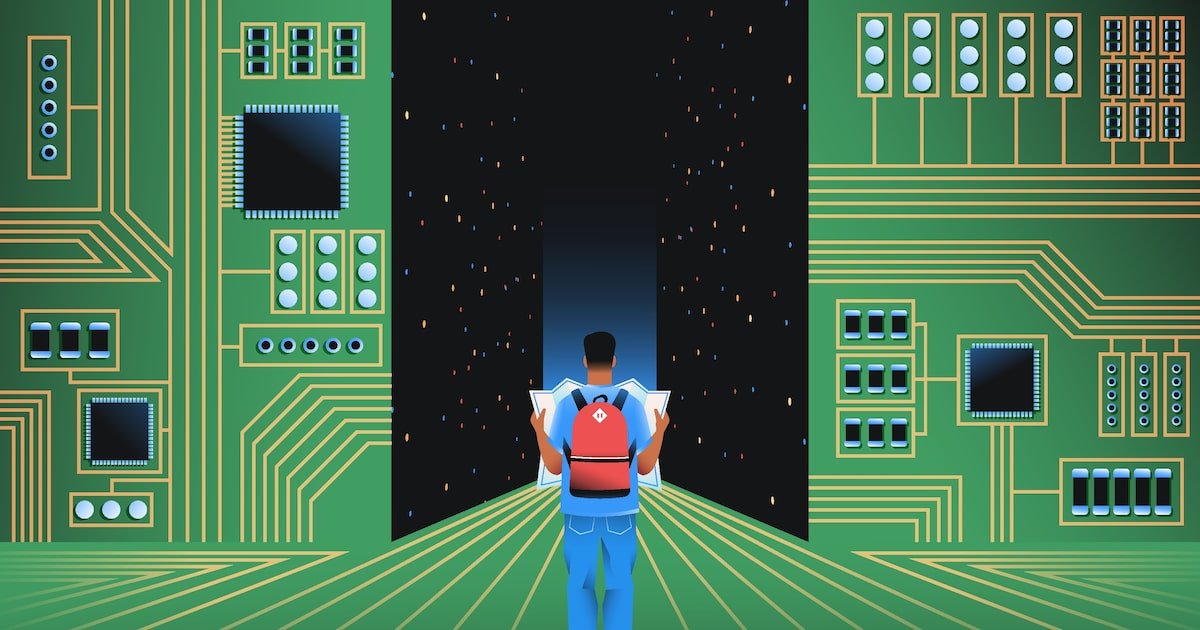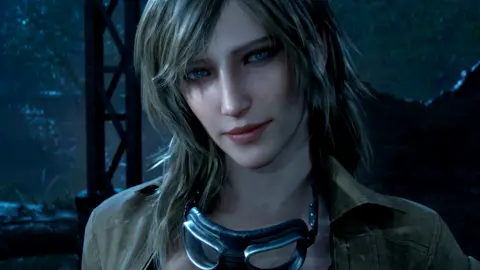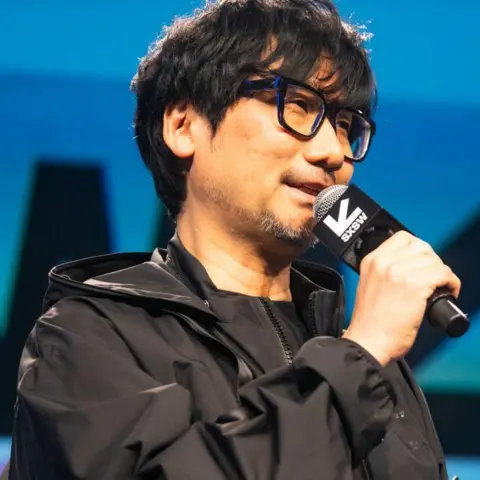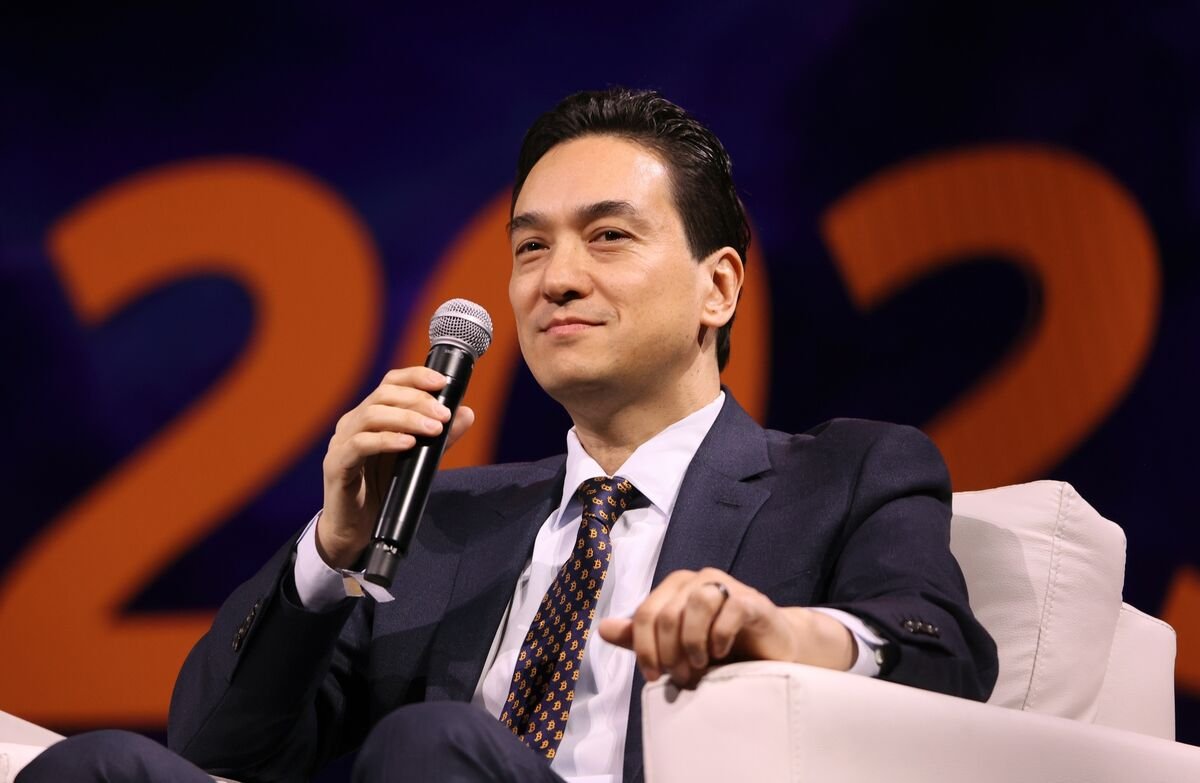AI Insights
A professor negotiates with ChatGPT

ChatGPT, I’m teaching Moby Dick for the umpteenth time this semester. I probably shouldn’t be telling you this, but I just don’t have the energy to come up with a writing prompt for my students. Can you help?
…
Is “Discuss the symbolism of the whale” the best you can do? My eyes glazed over just reading it. ChatGPT, could you spice things up with something a bit more relevant to young people today?
…
I’ll admit that “Comment on Melville’s toxic masculinity” wouldn’t be my own first choice for a prompt. But the kids will like it, so let’s go with it. Now I have another question: how should I grade their essays?
…
You’re right about grade inflation, ChatGPT. But did you have to rub it in by replying, “Don’t worry, everyone in your class will get an A or A- minus”? That was just cruel. Anyway, how should I decide who gets the higher grade?
…
“Reward the most original arguments”? Are you for real? (Don’t answer that.) We both know that the students will be using you to write their essays, just like I’m using you to grade them. Speaking of which: How about a rubric?
…
Thanks, ChatGPT. Your five-part grading rubric is going to make my life easier. And things will be even easier if I can just feed the students’ essays to you and let you fill in the boxes. Can we make that happen?
…
“Yes, but I might hallucinate now and again” isn’t giving me a lot of confidence, ChatGPT. Full disclosure: I did some of my own hallucinating back in college. Are you basically telling me that you’re tripping?
…
ChatGPT, thanks for confirming that you’re not on LSD. And I’ll try to be more literal from now on. Can you please draw up a lesson plan that I can use for my three class sessions about Moby Dick?
…
Since you asked: Yes, please design group activities for each lesson. I mean, do I have to do everything?
…
ChatGPT, I like the idea of making one side of the room Team Ishmael and the other Team Ahab. But the exercise won’t work unless the students have read the book. How can I make sure they have done that?
…
An in-class quiz? Are you kidding? ChatGPT, that’s, like, so high school. My students are grown-ups, and I need to treat them that way.
…
“Grown-ups need to be held accountable” is business-speak, ChatGPT. I’m a humanities guy, remember? I want my students to suck out all the marrow of life, just like Thoreau said. How can I help them do that?
…
“Assign Walden” presumes they’ll actually read Walden instead of skimming the bland summaries that you and your fellow bots generate. We’re back where we started. Any other ideas?
…
I take your point: if I want the students to live a life of the mind, I need to model that. But how? When you can do everything, what’s left to be done?
…
Sorry, ChatGPT, but “A Large Language Model can scan huge swaths of text, yet it can’t feel emotions” doesn’t really answer my question. My job is to write things, not feel things. And I’m afraid you’re going to take my job soon, along with almost any gig my students might want. How’s that for a feeling?
…
I know, I know, you just said you can’t feel stuff. Sorry.
…
“Apology accepted”? So you do have feelings, after all!
…
ChatGPT, please create a 650-word satire of yourself in the voice of an amiable but baffled senior professor. Make it kind of cute, in an old-person’s kind of way. But don’t make it too cute, or everyone will know that you wrote it. Do we understand each other?
Jonathan Zimmerman teaches education and history at the University of Pennsylvania. He is author of “Whose America? Culture Wars in the Public Schools” and eight other books. He really wrote those books. He wrote this column, too.
AI Insights
Metal Gear Solid back with remake years after Kojima left Konami

Tom GerkenTechnology reporter
 Konami
KonamiMetal Gear is one of the best-selling video game series in history, shifting more than 60 million copies.
The series pioneered cinematics in gaming by blending cutting-edge cutscenes, voice acting and dynamic camera angles to create something that would have looked more at home on the big screen at the time.
Metal Gear tackled themes not commonly seen in games, such as nuclear disarmament and child soldiers, and posed philosophical questions while also leveraging offbeat humour.
The games would often break the fourth wall and ask players to find solutions to puzzles in unusual ways – such as looking on the back cover of the game’s physical box.
The series’ significant place in gaming history meant fans were stunned when its creator Hideo Kojima quit game publisher Konami in an acrimonious split in 2015.
One of gaming’s biggest titles was left directionless – and there’s been no game in the best-selling series since.
But now, a decade later, Konami has released a remake of the third game in the series: Metal Gear Solid Delta.
So what happened between Konami and Kojima, and how does the new game hold up without its original creator?
Why did Kojima leave Konami?
“The impact Metal Gear has had on game-making makes it one of the most heralded entertainment franchises in the world, and made Hideo Kojima one of the industry’s most famous creators,” industry expert Christopher Dring told the BBC.
With such success, you might think it was a match made in heaven, but there were issues bubbling under the surface.
While nothing has been said publicly, one generally accepted theory behind the split relates to the spiralling cost of 2015’s Metal Gear Solid V, estimated by some at more than $80m (£59m) – a very significant development cost at the time.
It is not known exactly what happened between Konami and Kojima, but the studio was clearly fed up with the amount of money he was spending to make a single game – with Kojima’s internal studio actually removed from promotional materials for Metal Gear Solid V at the time.
Konami got the game out the door, but it seemed to be scaled back from its original vision despite the high cost, with repeated levels and a third chapter that never emerged.
Even so, the game still received excellent reviews and won several awards, but the rift between company and creator seemed unfixable.
And in an act that proved highly controversial – and perhaps shows how heated things had become behind the scenes – when Metal Gear Solid V won an award, Konami informed the developer he was not allowed to collect it.
 Getty Images
Getty ImagesA few months later, Kojima was gone, and in the years that followed, his former studio pivoted.
“Konami shifted its strategy for a while, away from console games, and focused its efforts on the amusements markets, things like pachinko machines,” Mr Dring said.
“They also focused increasingly on mobile.”
It meant Konami’s other classic franchises like Castlevania and Silent Hill also went without new games for a decade.
Meanwhile, Kojima’s new studio signed a blockbuster deal with Sony to develop the monster hit Death Stranding for PlayStation, followed by a sequel this year.
Why a remake now?
Gaming has pivoted towards remakes in recent years.
High-profile games like Resident Evil 4, Final Fantasy VII and Demon’s Souls, all classics in their day, have been remade with the benefits of modern graphics and game design to big fanfare – and strong sales figures.
“It’s a hugely lucrative and growing sector,” said Mr Dring.
“The industry is getting older, gamers are entering middle age and are nostalgic for classic titles.
Mr Drings points out that one of the best-selling games of the year so far is Elder Scrolls V: Oblivion Remastered, a remake of a classic Role-Playing Game (RPG) from 2007, selling millions of copies since its release in April.
Konami has begun a return to publishing games by focusing in this area, with a Silent Hill remake coming last year and a new Survival Kids game released earlier in 2025.
So it is a potentially lucrative move – but is Metal Gear Solid 3: Snake Eater the right game to remake?
 Konami
KonamiFans of the series told the BBC Metal Gear Solid 3 was chosen for good reason.
YouTuber Zak Ras said there was “immense significance” behind the game.
“Most people will say their favourite entry to the series is either Metal Gear Solid 1 or 3,” he said.
“Story-wise, given that it’s the first prequel set at the very beginning of the series timeline, it’s one of the few entries you can go into completely blind with absolutely no required knowledge of the series, other than very first Metal Gear from 1987.”
Ras said Metal Gear Solid 3 struck a good balance between gameplay and cinematic storytelling, making it a good choice for people who have never played a game in the series before.
For example, the game opens with an introduction heavily influenced by James Bond films, meaning new fans are eased into the series’ weirder elements.
And the brothers behind PythonSelkan Studios – known as Python & Selkan to their 122,000 YouTube subscribers – agreed.
“Completing the game was an incredible experience in itself,” they said. “Snake Eater’s gut-wrenching ending is what stood out most, leaving an impact on us that no other game had ever left before.”
“This game holds a special place in our hearts,” they added.
Metal Gear without Kojima
The brothers said, as lifelong fans of the series, they were “incredibly excited” by the announcement.
The pair are currently playing the remake, and have been “very impressed” by its improved graphics and audio.
They described the game as a “truly a faithful recreation”, adding that it improved “the essence of the original without changing its fundamental structure”.
 Konami
KonamiSo far so good for Metal Gear Solid without Hideo Kojima – which Ras put down to the game being true to the original.
One example he highlights is that the voice performances have been kept the same, and players can choose whether to use the original control scheme or a more modern take.
“There’s no doubt it is Kojima’s directorial ‘genes’ that are being dominantly expressed here,” he said.
“Kojima expressed a desire to move on from Metal Gear since as early as MGS2 and leave the series in the hands of others to continue.
“It may have taken him another 14 years and five director credits for that to happen, but it is now reality.”
And however the remake fares with fans, one household won’t be picking up a new copy – Kojima himself has laughed off the suggestion that he would play the new game.

AI Insights
Bitcoin Proxy’s Chief Seeks Funding Fix as ‘Flywheel’ Falters

Simon Gerovich, who turned a struggling Japanese hotelier into a Bitcoin stockpiler and investor darling, is feeling the heat.
Source link
AI Insights
Anthropic Settles Landmark Artificial Intelligence Copyright Case

Anthropic’s settlement came after a mixed ruling on the “fair use” where it potentially faced massive piracy damages for downloading millions of books illegally. The settlement seems to clarify an important principle: how AI companies acquire data matters as much as what they do with it.
After warning both the district court and an appeals court that the potential pursuit of hundreds of billions of dollars in statutory damages created a “death knell” situation that would force an unfair settlement, Anthropic has settled its closely watched copyright lawsuit with authors whose books were allegedly pirated for use in Anthropic’s training data. Anthropic’s settlement this week in a landmark copyright case may signal how the industry will navigate the dozens of similar lawsuits pending nationwide. While settlement details remain confidential pending court approval, the timing reveals essential lessons for AI development and intellectual property law.
The settlement follows Judge William Alsup’s nuanced ruling that using copyrighted materials to train AI models constitutes transformative fair use (essentially, using copyrighted material in a new way that doesn’t compete with the original) — a victory for AI developers. The court held that AI models are “like any reader aspiring to be a writer” who trains upon works “not to race ahead and replicate or supplant them — but to turn a hard corner and create something different.”
(For readers unfamiliar with copyright law, “fair use” is a legal doctrine that allows limited use of copyrighted material without permission for purposes like criticism, comment, or — as courts are now determining — AI training. A key test is whether the new use “transforms” the original work by adding something new or serving a different purpose, rather than simply copying it. Think of it as the difference between a critic quoting a novel to review it versus someone photocopying the entire book to avoid buying it.)
After ruling in Anthropic’s favor on this issue, Judge Alsup drew a bright line at acquisition methods. Anthropic’s downloading of over seven million books from pirate sites like LibGen constituted infringement, the judge ruled, rejecting Anthropic’s “research purpose” defense: “You can’t just bless yourself by saying I have a research purpose and, therefore, go and take any textbook you want.”
The settlement’s timing suggests a pragmatic approach to risk management. While Anthropic could claim vindication on training methodology, defending its acquisition methods before a jury posed substantial financial exposure. Statutory damages for willful infringement can reach $150,000 per work, creating potential liability for Anthropic totaling in the billions.
Anthropic is still facing copyright suits from music publishers, including Universal Music Corp. and Concord Music Group Inc., as well as Reddit. The settlement with authors removes one of Anthropic’s many legal challenges. Lawyers for the plaintiffs said, “[t]his historic settlement will benefit all class members,” promising to announce details in the coming weeks.
This settlement solidifies the principles established in Judge Alsup’s prior ruling: how AI companies acquire training data matters as much as what they do with it. The court’s framework permits AI systems to learn from human cultural output, but only through legitimate channels.
For practitioners advising AI projects and companies, the lesson is straightforward: document data sources meticulously and ensure the legitimate acquisition of data. AI companies that previously relied on scraped or pirated content face strong incentives to negotiate licensing agreements or develop alternative training approaches. Publishers and authors gain leverage to demand compensation, even as the fair use doctrine limits their ability to block AI training entirely.
The Anthropic settlement marks neither a total victory nor a defeat for either side, but rather a recognition of the complex realities governing AI and intellectual property. It also remains to be seen what impact it will have on similar pending cases, including whether this will create a pattern of AI companies settling when facing potential class actions. In this new landscape, the legitimacy of the process matters as much as the innovation of the outcome. That balance will define the next chapter of AI development. Under Anthropic, it is apparent that to maximize chances of AI models constituting fair use, developers should use a bookstore, not a pirate’s flag.
-
Tools & Platforms3 weeks ago
Building Trust in Military AI Starts with Opening the Black Box – War on the Rocks
-

 Ethics & Policy1 month ago
Ethics & Policy1 month agoSDAIA Supports Saudi Arabia’s Leadership in Shaping Global AI Ethics, Policy, and Research – وكالة الأنباء السعودية
-

 Events & Conferences3 months ago
Events & Conferences3 months agoJourney to 1000 models: Scaling Instagram’s recommendation system
-

 Jobs & Careers2 months ago
Jobs & Careers2 months agoMumbai-based Perplexity Alternative Has 60k+ Users Without Funding
-

 Business1 day ago
Business1 day agoThe Guardian view on Trump and the Fed: independence is no substitute for accountability | Editorial
-

 Funding & Business2 months ago
Funding & Business2 months agoKayak and Expedia race to build AI travel agents that turn social posts into itineraries
-

 Education2 months ago
Education2 months agoVEX Robotics launches AI-powered classroom robotics system
-

 Podcasts & Talks2 months ago
Podcasts & Talks2 months agoHappy 4th of July! 🎆 Made with Veo 3 in Gemini
-

 Podcasts & Talks2 months ago
Podcasts & Talks2 months agoOpenAI 🤝 @teamganassi
-

 Jobs & Careers2 months ago
Jobs & Careers2 months agoAstrophel Aerospace Raises ₹6.84 Crore to Build Reusable Launch Vehicle






















